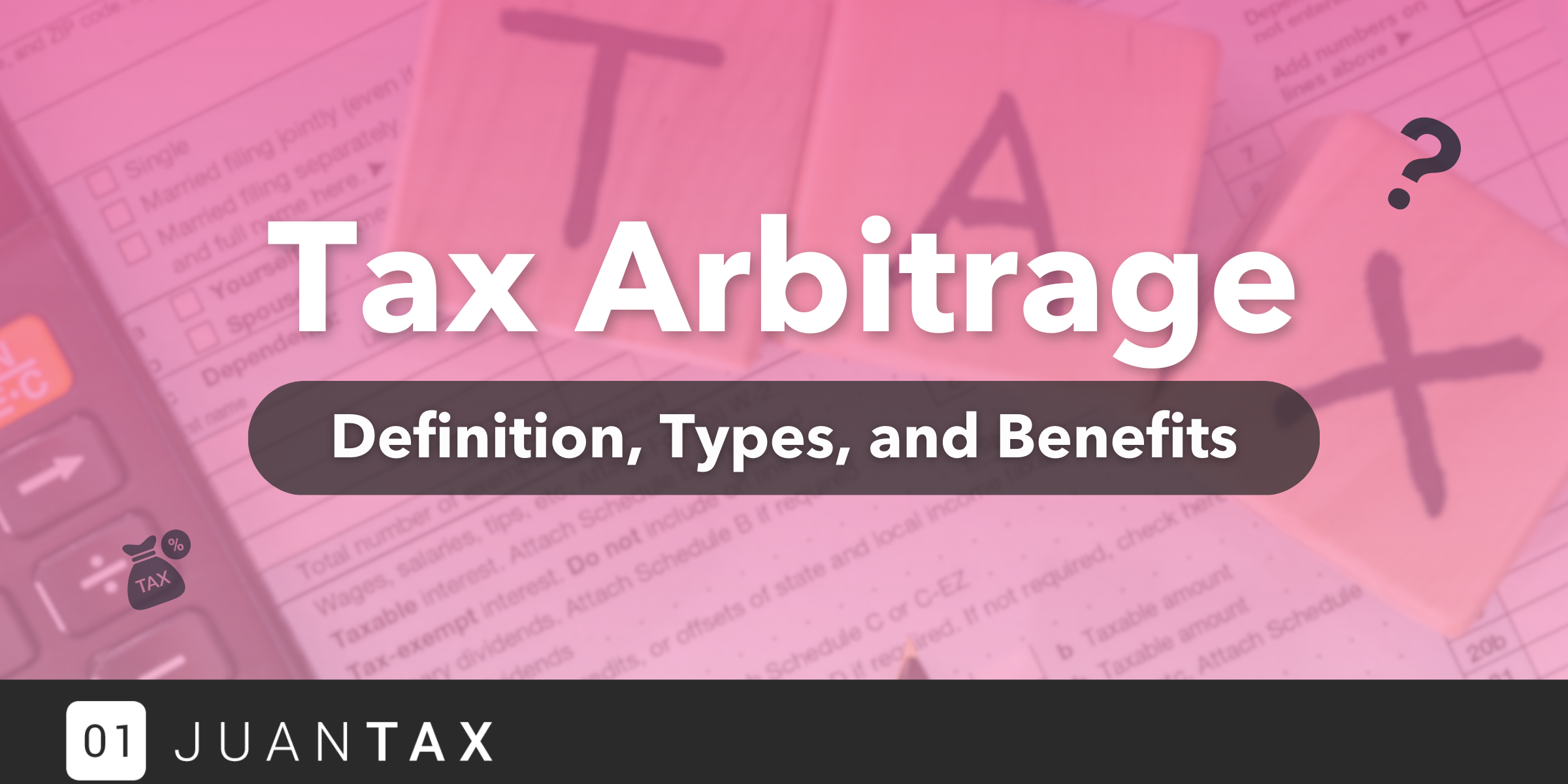Are you looking for ways to reduce your tax liability while staying within the boundaries of the law? If so, you may be interested in learning about tax arbitrage.
Tax arbitrage refers to the practice of taking advantage of differences in tax laws or rates in different jurisdictions to reduce one’s tax liability. This can be done by engaging in certain financial transactions or structuring investments in a way that minimizes taxes. There are several types of tax arbitrage, including international tax laws, which involves taking advantage of differences in tax laws between countries, and municipal bond arbitrage, which involves buying tax-exempt municipal bonds and then investing the proceeds in taxable securities to earn a higher return. Align with this, double taxation treaties can play a significant role in tax arbitrage by reducing the risk of double taxation and providing clarity on the allocation of taxing rights between two countries.
Tax arbitrage has benefits, which can be significant, including tax liability reduction, increased investment returns, and improved cash flow. However, it’s important to note that engaging in tax arbitrage carries some risk, and it’s crucial to work with a knowledgeable tax professional to ensure that your strategies are legal and effective.
Types of Tax Arbitrage Strategies
Tax arbitrage strategies are designed to take advantage of differences in tax laws or rates in different jurisdictions. There are several types of tax arbitrage strategies that individuals and businesses can use to minimize their tax liabilities. One such strategy is international tax arbitrage, which involves exploiting tax differences between countries. This can be done by setting up companies or trusts in low-tax jurisdictions or structuring cross-border tax planning in a way that minimizes tax liability.
These are the different types of Tax Arbitrage Strategies. Here’s a brief overview of each one:
- Cross-border tax arbitrage: This involves using tax differences between countries. This can be done by setting up companies or trusts in low-tax jurisdictions or structuring cross-border transactions in a way that minimizes tax liability.
- Product-specific tax arbitrage: This strategy involves taking advantage of differences in tax rates or exemptions for specific products or services. For example, if one jurisdiction has a lower tax rate on a particular product than another jurisdiction, a company could purchase the product in the lower-tax jurisdiction and then sell it in the higher-tax jurisdiction to take advantage of the tax differential.
- Currency tax arbitrage: This strategy involves utilizing differences in currency exchange rates to minimize tax liability. For example, if a company has operations in multiple countries, it could use currency hedging strategies to minimize its foreign exchange exposure and reduce its tax liability.
- Timing tax arbitrage: This strategy involves delaying or accelerating the recognition of income or expenses to minimize tax liability. For example, if a company expects tax rates to decrease in the future, it may defer income recognition until the lower tax rate takes effect.
- Entity tax arbitrage: This strategy involves taking advantage of differences in tax rates between different types of entities, such as corporations, partnerships, and LLCs. By choosing the right entity structure for their business, taxpayers can minimize their tax liability and maximize their after-tax returns.
In summary, understanding and implementing various types of tax arbitrage strategies can provide individuals and businesses with opportunities to optimize their tax positions, minimize tax liabilities, and enhance financial outcomes.
Benefits of Tax Arbitrage
Tax arbitrage can offer several benefits to individuals and businesses seeking to minimize their tax liability. One of the primary benefits is the ability to reduce taxes and increase after-tax returns. By taking advantage of differences in tax laws or rates between jurisdictions, taxpayers can minimize the amount of taxes they owe and potentially earn higher returns on their investments.
These are the following benefits of Tax Arbitrage. Here’s a brief explanation of each one:
- Reduced tax liability: Tax arbitrage strategies can help reduce tax liability by taking advantage of differences in tax laws or rates between jurisdictions. This can help individuals and businesses save money on their tax bills and potentially increase their after-tax returns.
- Increased cash flow: By reducing taxes, tax arbitrage can help free up cash that can be reinvested in a business or used for other purposes. This can improve cash flow and potentially lead to increased profitability.
- Diversification: Tax arbitrage strategies can help diversify a taxpayer’s investments and reduce their exposure to risk. By investing in different jurisdictions or using different types of tax arbitrage strategies, taxpayers can spread their risk and potentially improve their overall investment returns.
- Competitive advantage: By reducing costs through tax arbitrage, businesses can potentially offer products or services at lower prices than their competitors. This can help them gain a competitive advantage in the marketplace and potentially increase their market share and profitability.
In conclusion, tax arbitrage offers several benefits for businesses and individuals. By taking advantage of tax disparities between different jurisdictions, tax arbitrage allows for the optimization of tax liabilities and the maximization of after-tax returns. It provides opportunities to legally minimize taxes, enhance cash flow, and increase profitability.
Risks of Tax Arbitrage
Tax arbitrage can be a powerful tool for reducing tax liability, but it also comes with a number of risks. One of the primary risks is the potential for legal and reputational harm. If tax arbitrage strategies are not structured properly or if they are deemed to be illegal or unethical, taxpayers can face significant legal and financial consequences. In addition, tax laws and regulations are subject to change, which can make tax arbitrage strategies less effective over time. There is also a risk of tax authorities challenging tax arbitrage strategies and disputing their validity, which can result in additional legal and financial costs.
These are some risks of Tax Arbitrage. Here’s a brief explanation of each one:
- Legal and reputational risks: Tax arbitrage strategies that are not structured properly or are deemed to be illegal or unethical can result in significant legal and financial consequences, as well as damage to an individual or business’s reputation.
- Uncertainty and complexity: Tax laws and regulations are subject to change, which can make tax arbitrage strategies less effective over time. In addition, tax arbitrage can be complex and require a significant amount of expertise and resources to implement effectively, which can create uncertainty and operational challenges.
- Increased scrutiny from tax authorities: Tax arbitrage strategies may attract increased scrutiny from tax authorities, who may challenge the validity of the strategies and dispute their tax benefits.
- Unforeseen tax consequences: Tax arbitrage strategies can have unintended tax consequences, such as triggering additional taxes, penalties, or interest charges, which can erode the benefits of the strategy.
- Operational risks: Tax arbitrage strategies can require significant operational and administrative resources to implement effectively, which can create additional risks and costs for individuals and businesses.
In conclusion, while tax arbitrage can offer benefits, it is crucial to approach it with caution and responsibility. Understanding the legal, reputational, operational, and regulatory risks associated with tax arbitrage allows individuals and businesses to make informed decisions, adhere to ethical practices, and ensure compliance with applicable tax laws and regulations. By carefully managing these risks, taxpayers can pursue tax optimization strategies while maintaining their financial well-being and reputation.

Role of Tax Professionals in Tax Arbitrage
Tax professionals play a critical role in tax arbitrage, helping individuals and businesses navigate the complex and ever-changing landscape of tax laws and regulations. Tax professionals can help assess the risks and benefits of tax arbitrage strategies, develop and implement effective tax planning strategies, and ensure legal compliance. They can also provide ongoing monitoring and support to ensure that tax arbitrage strategies remain effective and appropriate over time.
List of roles of tax professionals in tax arbitrage. Here’s a brief explanation of each one:
- Assessing the feasibility of tax arbitrage strategies: Tax professionals can assess the feasibility of tax arbitrage strategies by evaluating the tax laws and regulations, as well as the individual circumstances of the taxpayer. This includes analyzing tax benefits, risks, and costs associated with the strategy.
- Developing and implementing tax arbitrage strategies: Tax professionals can help develop and implement tax arbitrage strategies that are legal, effective, and appropriate for the individual circumstances of the taxpayer. This includes structuring the strategy, identifying tax benefits and risks, and providing recommendations for implementation.
- Providing ongoing support and guidance: Tax professionals can provide ongoing monitoring, support, and guidance to ensure that tax arbitrage strategies remain effective and appropriate over time. This includes identifying changes in tax laws and regulations, assessing the impact on the strategy, and recommending changes as necessary.
- Mitigating risks: Tax professionals can help mitigate the risks associated with tax arbitrage, including legal and reputational risks, uncertainty and complexity, and increased scrutiny from tax authorities. This includes assessing the risks associated with the strategy and providing recommendations to mitigate those risks.
- Facilitating communication with tax authorities: Tax professionals can facilitate communication with tax authorities regarding tax arbitrage strategies, including responding to questions and concerns from tax authorities and representing taxpayers in disputes related to tax arbitrage.
Overall, tax professionals play a crucial role in tax arbitrage by helping individuals and businesses maximize their tax benefits while minimizing their risks. Additionally, being aware about tax avoidance vs. tax evasion can help individuals and businesses. Tax avoidance refers to the legal use of tax strategies to minimize tax liability, while tax evasion is a criminal offense and can result in fines, penalties, and even imprisonment.

How to Optimize Tax Arbitrage
Optimizing tax arbitrage involves identifying and implementing tax planning strategies that maximize tax benefits while minimizing risks and costs. This typically involves a thorough analysis of individual circumstances, including income, assets, and business operations, as well as an understanding of relevant tax laws and regulations. To optimize tax arbitrage, individuals and businesses should work with a knowledgeable tax professional who can help develop and implement effective tax planning strategies.
Here’s the following steps on how to optimize tax arbitrage. Here’s a brief explanation of each one:
- Understand your tax obligations: The first step to optimizing tax arbitrage is to understand your tax obligations. This includes knowing your tax liabilities and deadlines, as well as the tax laws and regulations that apply to your situation.
- Stay up-to-date with tax laws and regulations: Tax laws and regulations are constantly evolving, so it’s important to stay up-to-date on any changes that may impact your tax planning strategies. This includes monitoring tax reform efforts, changes in tax codes, and relevant court decisions.
- Consider multiple tax arbitrage strategies: To optimize tax arbitrage, individuals and businesses should consider multiple tax planning strategies. This may include evaluating the benefits and risks of each strategy, and determining which ones are most appropriate for their individual circumstances.
- Consult with a tax professional: Working with a knowledgeable tax professional can help individuals and businesses identify, develop, and implement effective tax planning strategies. Tax professionals can also provide ongoing monitoring and support, and help adjust strategies as needed to ensure continued tax optimization.
- Monitor and adjust your tax arbitrage strategies: To ensure continued tax optimization, it’s important to monitor and adjust tax arbitrage strategies as necessary. This includes evaluating the effectiveness of the strategies, identifying any new tax laws or regulations that may impact them, and making adjustments as needed to maximize tax benefits while minimizing risks and costs.
In conclusion, optimizing tax arbitrage requires a comprehensive understanding of individual circumstances, relevant tax laws and regulations, and the benefits and risks associated with different tax planning strategies. By following the steps outlined, individuals and businesses can maximize tax benefits while minimizing risks and costs.

Conclusion
In summary, tax arbitrage can provide significant benefits for individuals and businesses looking to optimize their tax liabilities. However, it also comes with a range of risks and complexities that need to be managed effectively. To successfully optimize tax arbitrage, it’s important to understand your tax obligations, stay up-to-date with tax laws and regulations, consider multiple tax arbitrage strategies, consult with a tax professional, and monitor and adjust your strategies as needed.
Additionally, tax structuring is the process of designing a tax efficient organizational or transactional structure to minimize tax liabilities while complying with applicable tax laws and regulations. By following these steps, individuals and businesses can maximize tax benefits while minimizing risks and costs. To learn more about tax arbitrage and how to optimize it for your situation, consider consulting with a qualified tax professional today.
JuanTax can help you ensure tax compliance by providing real-time tax updates, generating tax returns and reports, and helping users stay up-to-date with relevant tax laws and regulations. Visit to know more about its solutions at https://juan.tax.












